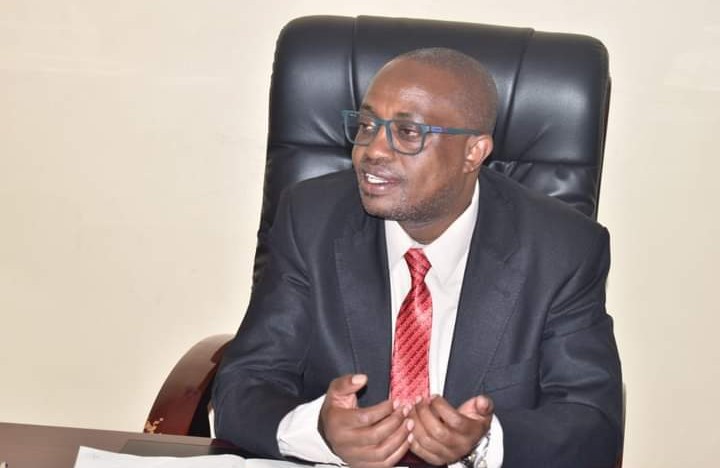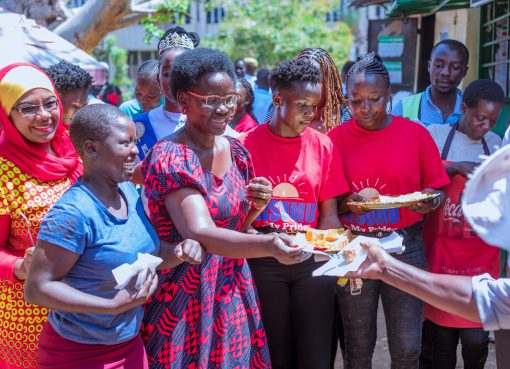The County Government of Nakuru has teamed up with the Kenya Bureau of Standards (KEBS) in its renewed plans to step up the fight against illicit trade that has been one of the leading causes of revenue loss for both public and private sector.
Acting County Executive Member for Trade and Industrialization Mr. Francis Mwangi said the partnership will focus on training the devolved unit’s personnel on enforcement measures of laws against counterfeits as well as inter-agency cooperation to boost information sharing across the neighbouring counties.
In an interview with Kenya News Agency in his office Mr. Mwangi indicated that unscrupulous local and foreign traders are flooding the county’s markets with fake and substandard goods putting business operations at risk.
“There have been serious negative impacts on the viability of industries, jobs and tax revenues across the devolved unit. Local manufacturers are losing about over Sh.800 billion annually and about 40 per cent of their market share to counterfeits and other illicit forms of trade,” said the CEC.
Mr. Mwangi noted that massive circulation of fake drugs was threatening to derail the universal healthcare agenda while sub-standard agricultural inputs such as fertilizer and pesticides were compromising food nutrition and security. He warned that approximately 30 percent of alcoholic drinks in Nakuru were counterfeits.
Other most counterfeited goods include medicines, soaps and detergents, dry cell batteries, cosmetics and software.
“Most counterfeit products are of inferior quality. Therefore the owners of the genuine products need to create consumer awareness of the dangers of consuming counterfeit products. A lot of times it is very difficult to distinguish between a genuine product and a counterfeit one. It is important for owners of genuine products to assist consumers distinguish the products,” observed the CEC.
The CEC said KEBS had undertaken to train county quality assurance inspectors and enforcement personnel on detection, interception and reporting of counterfeited products.
“We expect our officers will be trained as Trainers of Trainers (ToTs) to pass on the knowledge to traders and consumers across the county on identification and risks of trading in uncertified goods. The County administration is keen to enlighten the residents of Nakuru on how to access certification of products, identify certified products and ways of reporting counterfeits,” noted the CEC
Counterfeiting and other forms of illicit trade undermine investment, research and innovation, reduce profitability and market share for legitimate operators and create an unleveled playing field.
Mr. Mwangi observed that other than having in place laws and institutions, a lot more needs to be done in terms of awareness. “As long as there is a consistent demand for counterfeited products, then the menace may never end. The public and indeed the consumers need to be made aware that counterfeited products are illegal. Many consumers are not even aware that counterfeited products are illegal.
Speaking separately Deputy Governor Dr Eric Korir noted that counterfeiters and illicit trade merchants were discouraging foreign companies intending from investing in Kenya.
“These fake goods undermine Kenya’s growth and diversification economy, reduce foreign direct investment by making it hard for investors to transfer technologies and cost local manufacturers millions of shillings,” stated Dr Korir
He said importation of substandard goods had an adverse effect on the economy, the survival and sustainability of local industry and the much needed employment.
Dr. Korir warned that counterfeit businesses also posed a serious danger to the general public, and cited numerous road accidents that are caused by sub-standard spare parts smuggled into the country or locally manufactured as counterfeits.
Buying genuine locally manufactured goods, he said, would boost the country’s economy and generate more jobs.
He observed that effective check on illegitimate trade has the potential of expanding Kenya’s value addition on manufactured goods from Sh. 650 billion to over Sh. I trillion annually and raise the sector’s economic output from 10 to 15 percent within a few years.
“We need to step up efforts to intercept counterfeit and contraband goods in the County with the Operationalisation of the Inland Container Depot (ICD) at Maai Mahiu in Naivasha Sub-County, as flooding of the market with contrabands that is threatening realization of the Big Four Agenda,” added Dr. Korir.
By Charloth Chepkemoi





